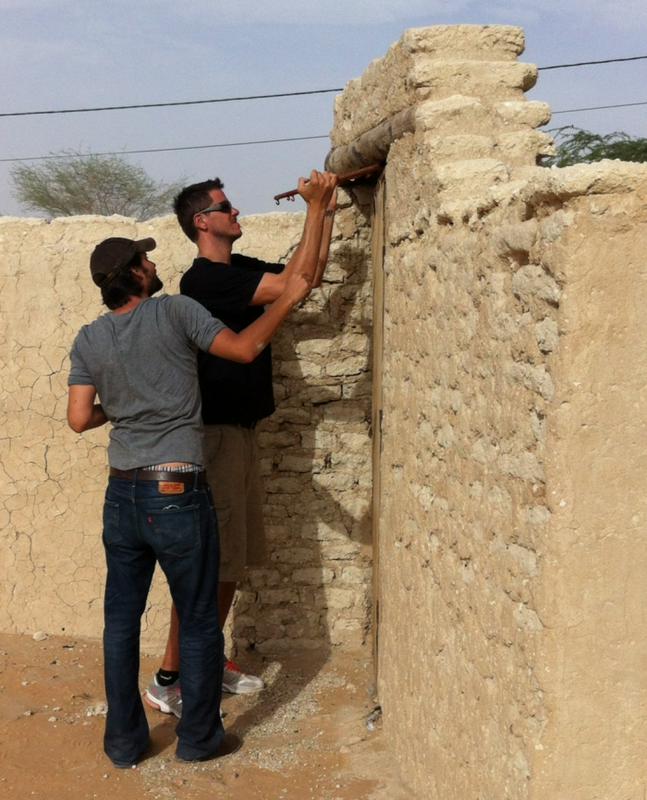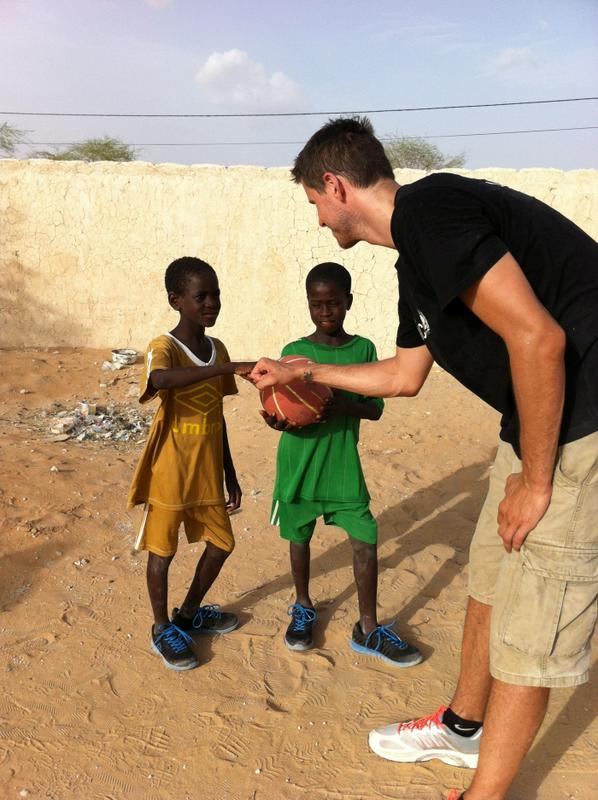
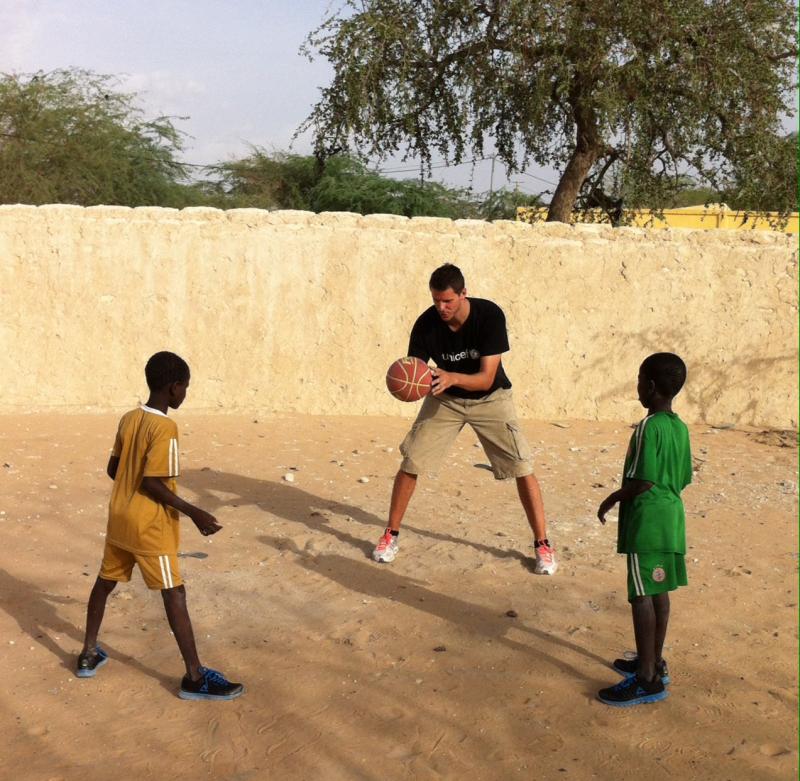
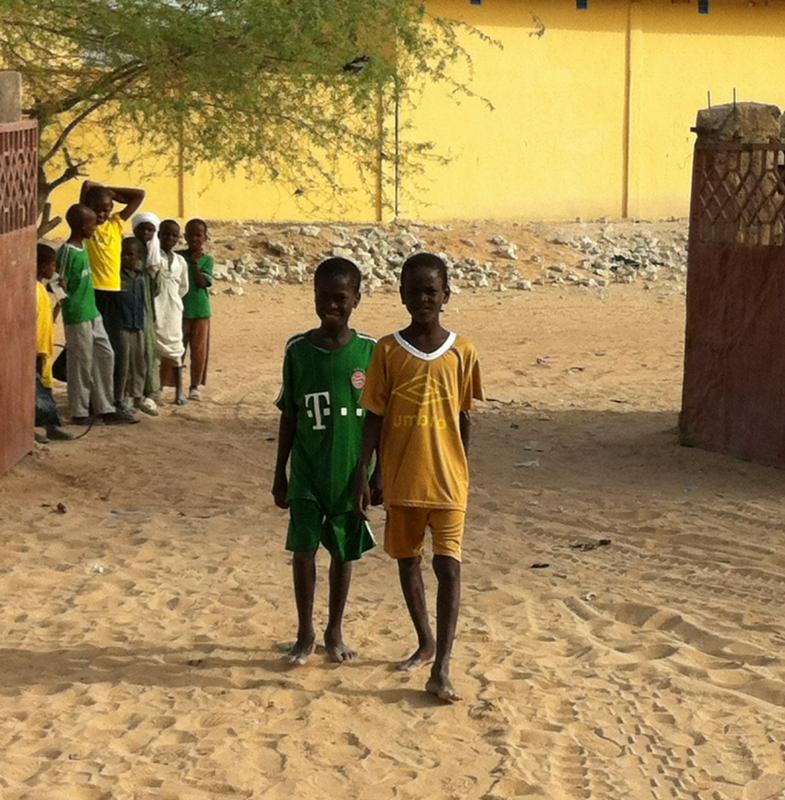
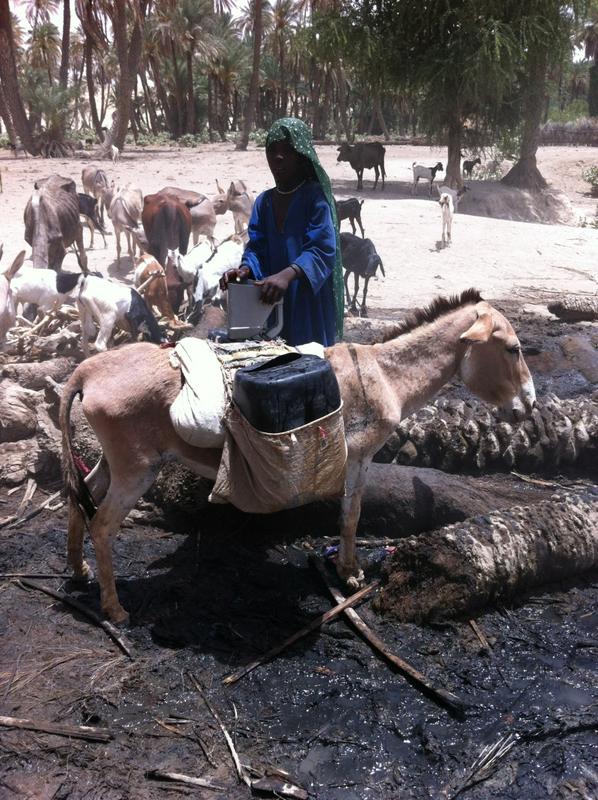
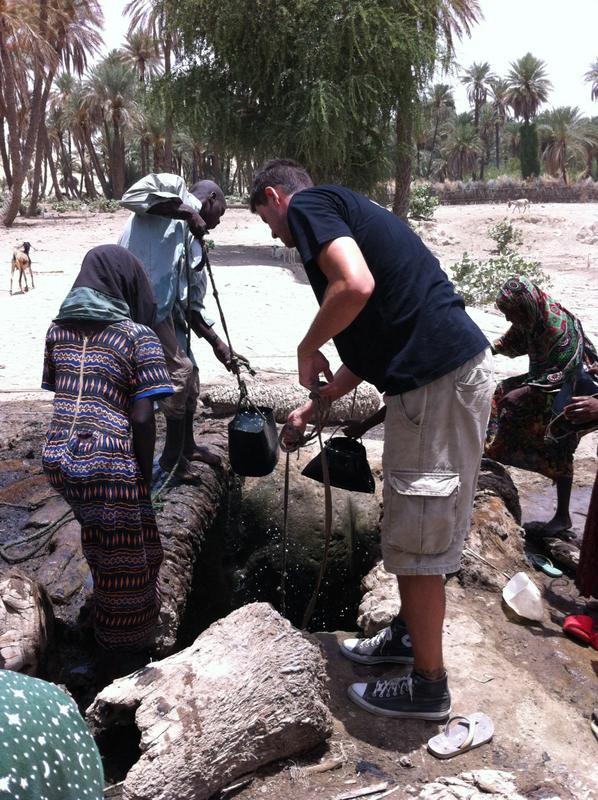
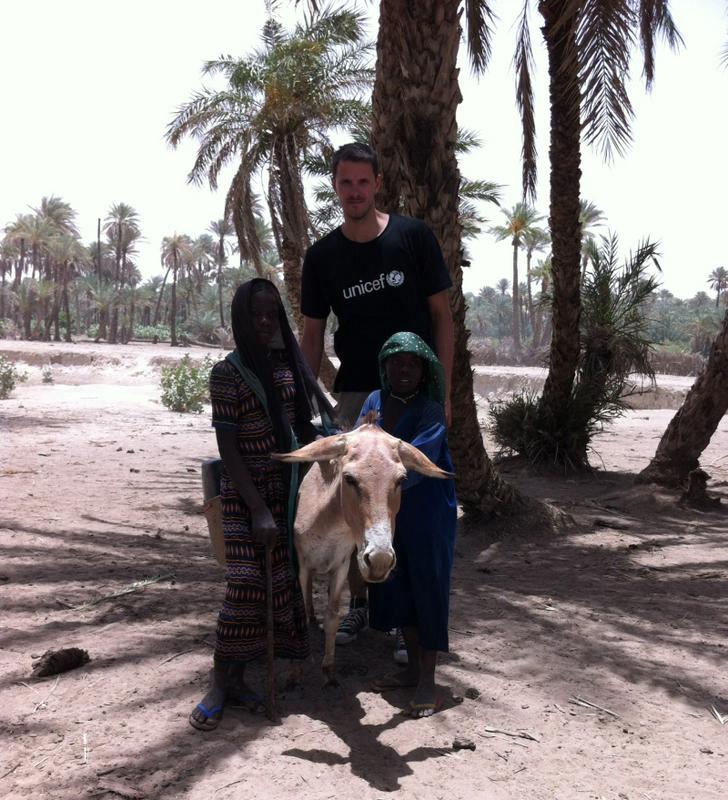
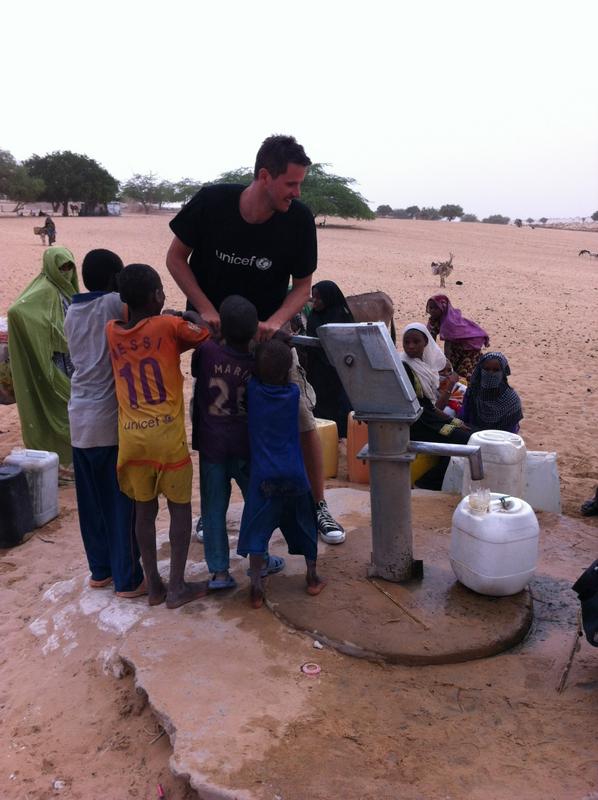
He lives in a very modest home, built out of cement, stone and sand. We had met his family on our first day in Chad and started talking to him. This time he told us he would like to take up sports but he's worried he'll never be able to do that because of malnutrition and physical weakness. He loves football but has only heard about basketball, he has never tried playing it. I promised I would take him to the playground in the afternoon and show him some basketball tricks.
After lunch we set off to find a playground with a basket. This turned out to be a harder task than we had thought it would be. There's not a single basket to be found in the entire town. On our stroll through the town I noticed an old construction of a basket without a ring or a board, so it was useless. After an hour's worth of search in the afternoon heat we found an old basketball ring in the courtyard of a town school. The only option was to attach it to something. We looked for a place to set it up and found one: I attached the ring between an old wooden door and a concrete frame. And the basket was ready.
Moussa came to the "practice" accompanied by his friend Muhamed. I could see it in his eyes that he can't wait to start. They both came barefoot, since they don't have any shoes. I gave each a pair of trainers and a ball as a gift from our sponsors. They didn't know how to tie the shoes, so I gave them a hand and then we were all set to begin the "practice". I showed them some basic basketball exercises and they repeated after me.
They needed some time to get used to the ball, but soon got into the rhythm and started dribbling the ball. The fact that we played on sand and not a solid surface made it all the more difficult. We moved on to shooting hoops and they were both very excited when they scored for the first time. I was a bit envious of that feeling, when you score for the first time in your life.
Later I showed them some basketball tricks that left them gaping at me. I imagine this must have been something completely new and impossible for them, but I assured them that they could handle the ball with such skill some day if they practice hard. At the end of the practice I gave another gift to Moussa, my own jersey from the national team, and assured him it would fit him some day.
Wearing new shoes and with a ball in hand they set off home, smiling. Only later, when I thought about the conditions Moussa lives in, did I realise what an unforgettable experience this must have been for him and his friend.
On the last day of filming we focused on the problem of water. When we drove through the town towards the villages, we saw a group of people in prayer by the road. The driver told us they were praying for rain.
We drove to a village about 10 km west of the town of Mao. Extremely beautiful landscape, peaceful and quiet. Sand everywhere, a bush or a semi-dry tree here and there. We stopped at a small village that has no access to drinking water. We got to know Achta, a 9-year-old girl who already needs to work hard. Every morning she loads two big plastic containers, similar to the ones for gas, on a donkey and heads for an oasis that is 3 km away and has a spring. We joined her on her walk.
The oasis doesn't look like as one might imagine it from a film. It's a dry spinney with an unregulated deep source of water. The latter is actually a hole in the ground around which gather not only villagers but also thirsty, malnourished and weakened domestic animals: goats, cows, donkeys etc. There is unbearable stench spreading all around the well. I took one peak into it and immediately saw that the water was dirty and not suitable for drinking. Achta lowered a smaller plastic container into the well on a piece of rope to pull water out of it. She had to repeat the task several times to fill the bigger two containers and load them onto the donkey. Before returning to the village, she picked some dates from under the tree, which she left on the courtyard to dry when she got home. The water she brought was decanted into smaller containers by her grandmother. Achta and her sisters drank this water.
This lovely girl has four sisters. Her family lives in a small house made of mud bricks. Her parents are at work far away from home, where they try to earn some money for their family. The girls are thus looked after by their grandparents, but the grandfather is blind. Achta doesn't attend school, since it's too far away. She's knows she lives in poverty. She fell ill multiple times for drinking unsanitary water. There are no health care facilities in the village. If someone falls ill, they need to help themselves. Achta likes to play with her sisters and friends from the village, although their toys are a complete opposite to what we imagine a toy to look like. They use old tins, discarded plastic, ropes and bottles as toys. This shows how creative they are, as they create a small toy story of their own from waste.
We asked Achta's grandmother what she wanted for her grandchildren, and she replied: "Drinking water. Because life without water is no life at all."
In the afternoon, we visited a village that is approx. 20 km away and has proper access to drinking water. UNICEF managed to set up a water pump 200 m away from the village. The difference is notable. Children were gathered around the pump, smiling and playing. One of them was trusted with pumping water into big containers. The water was clean and sanitary. A water pump changes the lives of villagers. For us a water pump symbolises a return into the past, but for the people of Chad it means future and progress.
On Tuesday the long journey home is due. The initial plan was to fly from Mao to n'Djamena on a small plane, but the plane broke down, so we'll have to drive for seven hours by car through the desert. What is more, it started raining in the evening, which might make the drive more difficult. Still, we're happy about the rain, especially because the villagers could desperately use every drop of it. Apparently their prayers have been heard.
Boštjan Nachbar, translated by K. Z.




















































